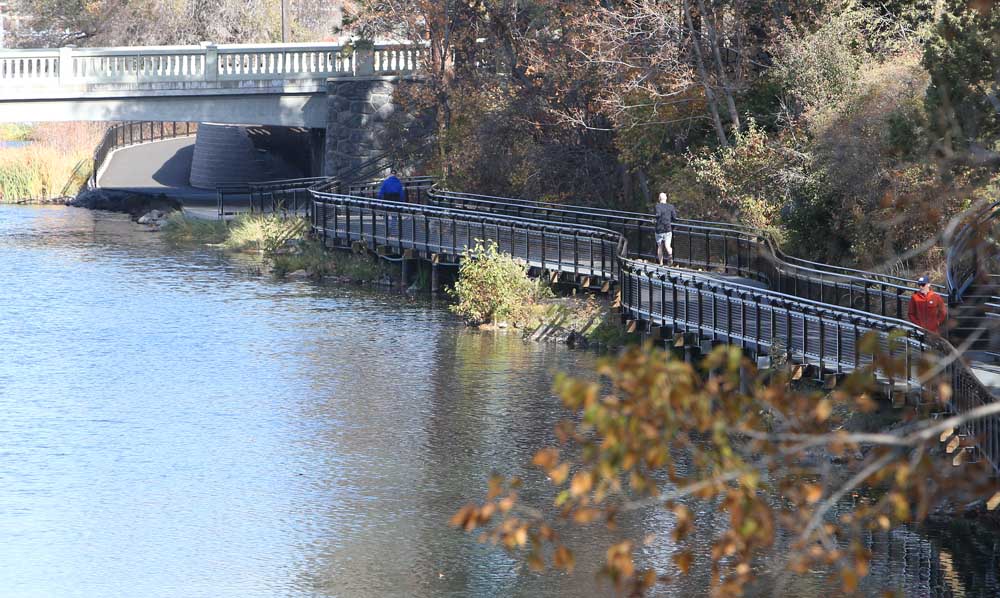Editorial: Housing incentives test relationship between city and parks in Bend
Published 5:00 am Tuesday, October 29, 2024

- A runner makes his way through Drake Park, down the boardwalk that travels under the Newport Avenue bridge in Bend.
The city of Bend and the Bend Park & Recreation District fight. They have more agreement than discord, but they have feuded in the past over housing incentives.
It’s more testy than ugly. It comes in flares. It flared earlier this year when park board member Nathan Hovekamp complained bitterly about redirecting public money intended for parks toward housing.
Trending
“Public funds that come to us as a special district are dedicated through either the property tax stream or the growth impact fee stream for parks and trails and recreation programming and so forth,” Hovekamp said. “Are they to be diverted to basically subsidize housing? And the mechanism is frankly, honestly, a kind of gift to developers.”
This week the two governing boards will meet to talk about their joint interests and seek more accord. The city and parks cooperate directly on bridges, trails, bike paths — so many other things. They overlap. For instance, the city owns the Drake Park bridge that connects two parks.
They also have collided. A tool the city of Bend has to promote housing is incentives. It can lower fees on affordable housing and other types of housing. It can give property tax breaks on new developments. The city would like the park district to join in.
There are multiple reasons why the park district has been wary.
First, as Hovekamp said, money raised by taxes and fees for the park district is intended to help with parks and recreation. He also hasn’t been the only person in Bend to question if the city’s incentive programs truly help those in need or end up as somebody else’s profits.
Second, the park district offers help to families to make a living in Bend more affordable, even if it does not directly take on housing. It offers scholarships to families for recreation programs, to try to ensure everyone can participate. The district provided about $250,000 in scholarships in fiscal year 2019-2020. The figure was perhaps more than $700,000 for 2023-2024. It means more than 3,200 individuals got help in the latest period.
Trending
Third, the park district faces a crunch from growth. As Bend grows — as it becomes more dense — it puts pressure on parks and trails. The future may be less park space per person and less trail mileage per person. The cost of land to expand is only growing. Every dollar siphoned off means less to keep parks as good as they are and more difficult to keep pace with growth.
The housing needs in Bend are easy to see. Look at the prices. It’s hard to find anyone who doesn’t know a story about businesses struggling to find employees, in part because of housing. Teachers have a hard time finding something they can afford. And a lot of people make less than teachers.
The city of Bend has incubated more housing. It has helped create more than 646 homes since 2019. It has opened six shelters. It has helped 162 residents buy their first home. It has worked hard to try to remove zoning and other obstacles to more housing. There is just so much need.
It’s also not a simple matter to develop a financial housing incentive that will please everyone. It will mean the money isn’t going to other important things. The money can help people in the housing industry. A further complication: The need in Bend is not only for housing for people who need less costly housing. If Bend doesn’t build more of all types of housing, people won’t be moving out of more affordable housing. How easy do you think it is to justify housing incentives for anything more than for people who struggle, even if the need is there?
We’d bet this week’s meeting won’t flare. And we need them to find ways to work together, despite the tensions that can drive them apart.








